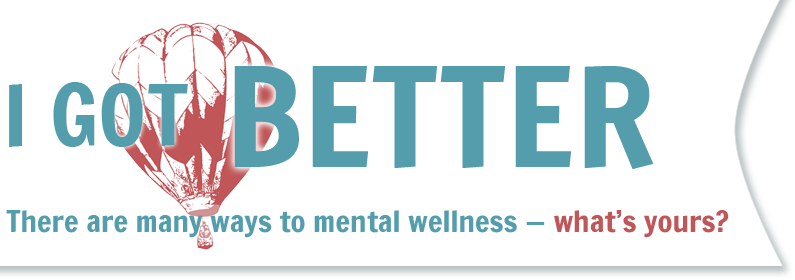I’m the Architect and Builder
By Elizabeth

During your mental health care, have you often felt hopeful about your chance of getting better?
Yes. There have been many times I felt hopeful. Sometimes, that hope was enhanced by compassionate treatment by mental health professionals. Dialectical Behavior Therapy is the ONE treatment that offered me hope when I was in the midst of suicidal despair, having lost my job due to my psychiatric difficulties and on [my] umpteenth hospital visit in just a few short years. DBT gave me hope that even at that low point, living a good life was possible.
If you overcame hopelessness that you could get better from a mental health or emotional problem, was there a turning point for you?
Dialectical Behavior Therapy. When I was in the state psychiatric hospital, I was told by a psychologist that for some people, DBT is life changing. After reading and learning more about DBT, I decided I would be one of those people. The week I was discharged I joined a DBT group and I totally threw myself into learning and practicing the skills. I committed to not harming myself in any way and to focusing on my therapy to an enormous degree.
Tell us what recovery means to you. How would you define recovery from mental health or emotional problems in your own words?
Recovery is living an abundant life. I once felt helpless and hopeless. Now, I have the skills I need to accomplish anything at all. I’m the architect and builder, and I am creating a life worth living. I am enjoying my blessings, I am solving my problems, and I am mourning my losses. I am thankful to be alive, every day.
If you could send a brief message to someone receiving mental health care today who is feeling hopeless about getting better, what would you say?
Recovery– complete and total recovery– is possible for you. No matter what anyone says, you are a person of worth. You are capable of mental health and wellness. It IS worth the effort to obtain and maintain emotional balance and psychological healing. Finally– as terrible as you feel right now? You won’t feel like that forever, so give yourself a little grace.
Can you give examples showing you have gotten better from a mental or emotional problem, such as how you are doing well or accomplishing goals you have chosen?
In the Summer of 2011, I was a court ordered patient at a state psychiatric hospital. I couldn’t walk outside without a staff member accompanying me. I couldn’t choose my own meals. I couldn’t wash my own clothing without supervision. I am now a student, on full scholarship, at a graduate school in a city near where I used to live. There is more to tell, but that’s the gist of it. I can handle the highs and lows of life now without panicking or falling apart. I can regulate just about any emotion and solve just about any problem.


